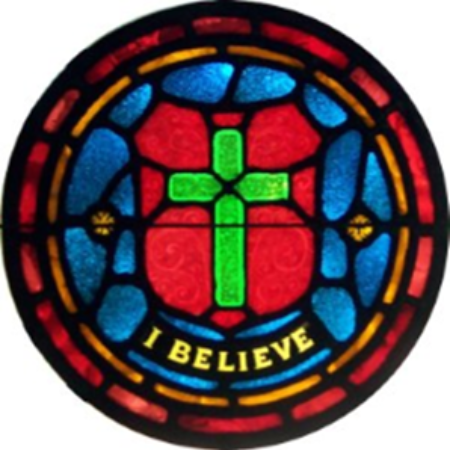On Trinity Sunday we used the quite different Athanasian Creed, instead of the Apostle’s or Nicene Creeds. Some people noted the recurring reference to the catholic faith, the catholic religion and the catholic church. But what does the term catholic mean?
The Greek word katholikos is a combination of two Greek words: kata (“according” or “about”) and holos (“whole”). Katholikos therefore means “according to the whole”, possibly best translated as “universal”. Its first use with reference to the Church is recorded in 107 AD to state that individual congregations that are visited by a Bishop are part of the whole church. The local congregation is not just its own little gathering, but part of the greater whole.
Later on, the word catholic acquired further meaning. In particular it was used to distinguish the true Church from heretical groups. After the split between the Western (Roman) Church and the Eastern Orthodox Church, each church maintained that it was the true catholic Church, and the other had left the true faith. There are further Oriental Catholic churches (apart from the Eastern Orthodox Church) that also consider themselves the true catholic church.
This sense was further challenged during the Reformation of the 16th century. The Reformers maintained that their doctrines and practices were closer to the original faith and not as corrupted as the doctrine and practices of the Roman Catholic Church. In contrast to the Roman Catholic Church, the protestant churches maintained that being “catholic” was not so much determined by the support for an institution, but rather by faith and life. A congregation is part of the catholic—that is “universal”—church because of the faith it proclaims, the sacraments it celebrates, and the way of life it encourages and models. That is more important than church hierarchy. The Roman Catholic and Eastern Orthodox Churches maintain that outside its institution there is no salvation. The Protestant churches maintain that where people gather in Jesus’ name and the apostolic faith is preached and practiced that is part of the “catholic” church and there is salvation. Of course, the Protestant Churches maintain that their doctrine and practice is right, but more in the sense of better rather than exclusively correct. Influenced by modern notions, many today would say that a congregation is not absolutely right, but rather “right for me”. That brings its own problems.
Some protestant Churches (including German-speaking ones) have replaced the term “catholic” in all the Creeds with the word “Christian”, arguing that this better reflects the original meaning of the word “catholic” and is therefore a better translation. I think that is a better way of understanding the term “catholic”. Many would describe “catholic” as being faithful to the teachings of the Bible and the historic Creeds.

